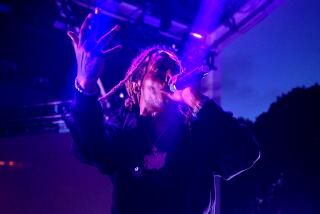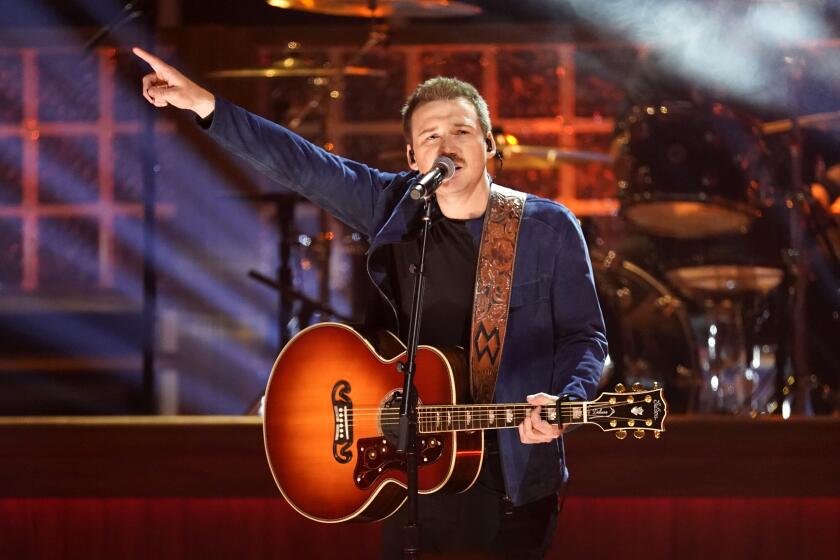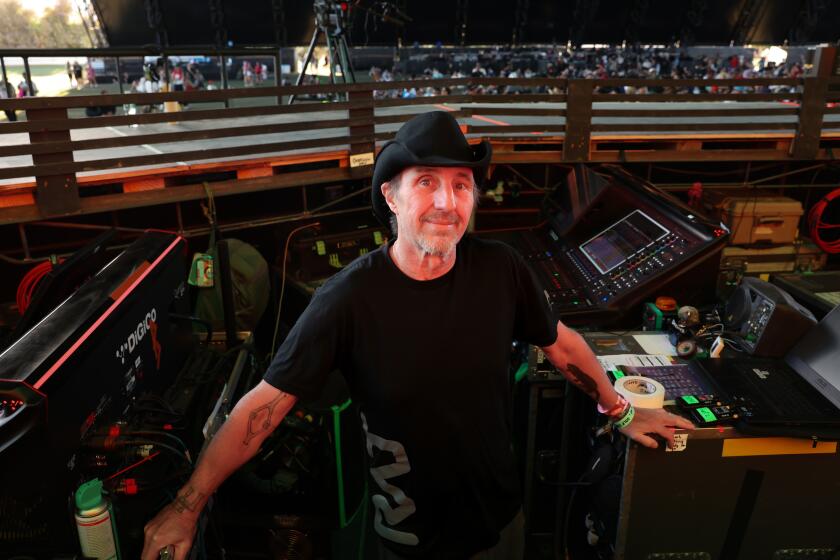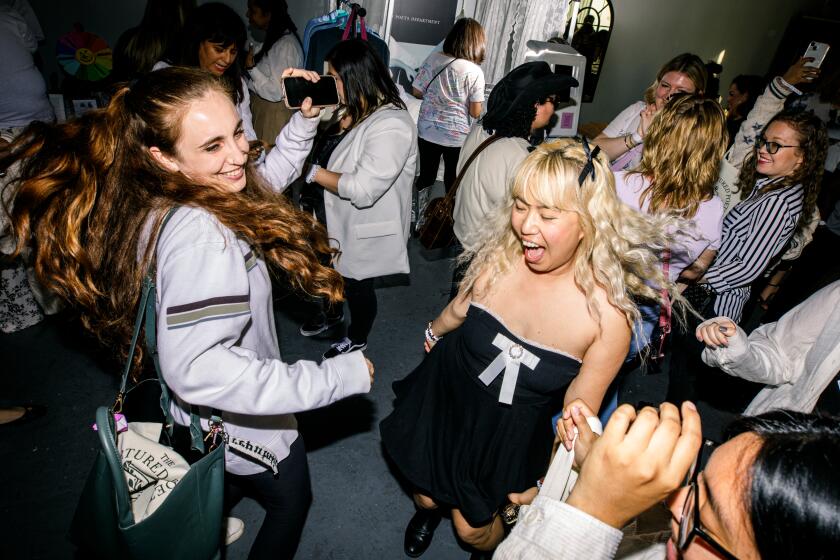Singer for metal band Quiet Riot
Kevin DuBrow, lead singer of Los Angeles rock band Quiet Riot, whose 1983 hit “Cum On Feel the Noize” helped usher heavy-metal music to new heights of popularity, was found dead in his Las Vegas home Sunday. He was 52.
The cause of DuBrow’s death was not known, and an autopsy is pending. Police and paramedics were called to the house by neighbors Sunday and DuBrow was pronounced dead, police and coroner’s officials said.
There was no forced entry, and no suspicious circumstances were reported, Officer Jose Montoya told the Associated Press on Monday.
Though DuBrow was open about his substance-abuse issues -- last year’s Quiet Riot album was titled “Rehab” and contained the track “Old Habits Die Hard” -- his recent health had been good. Quiet Riot finished a substantial U.S. tour in September.
Both the album and tour featured powerhouse drummer and DuBrow’s longtime friend Frankie Banali, who posted a message on his website expressing his grief over DuBrow’s death. “Please respect my privacy as I mourn the passing and honor the memory of my dearest friend,” Banali wrote.
Quiet Riot released its first record in Japan in 1977; it was the first heavy-metal L.A. band of the 1980s to make a substantial dent in the charts. The group’s 1983 album “Metal Health,” which contained the hit remake of British rock band Slade’s “Cum On Feel the Noize” and the big anthem “Bang Your Head (Metal Health),” went to No. 1 nationally and went on to sell more than 6 million copies, according to the Recording Industry Assn. of America.
Major sellers by L.A. groups such as Motley Crue and Ratt would follow, igniting the ‘80s “hair band” pop-metal movement, but Quiet Riot, despite years of persistence with various lineups, never duplicated its first success. The follow up to “Metal Health,” titled “Condition Critical,” peaked at No. 15 in 1984 but still sold more than 1 million copies.
DuBrow bridged the gap between 1970s power pop -- he sported new-wavish stripes, bright colors and suspenders -- and ‘80s metal, as represented by his grainy, rabble-rousing vocal delivery and Quiet Riot’s grunting, guitar-charged attack. His in-your-face stage presence and distinctive voice attracted the best musicians, such as Banali, widely admired guitarist Randy Rhoads (who died in a 1982 plane crash after making two albums with Ozzy Osbourne) and bassist Rudy Sarzo, who also went on to play with Osbourne.
After attracting the musicians, though, DuBrow often couldn’t keep them around. He admitted to being hard to get along with, and in 1987 was fired by his own band.
Quiet Riot’s 2006 album and 2007 tour featured different bassists and guitarists.
After growing up and living in the Los Angeles area, DuBrow moved to Las Vegas in 1995, sometimes living with his mother to escape mounting debts.
Though his presence on the rock scene was inconsistent, he was never forgotten for long; a request from Marilyn Manson to play at a party led to one 1997 Quiet Riot reunion.
Former Deep Purple bassist-singer Glenn Hughes, an outspoken addiction survivor, supported DuBrow on “Rehab.”
DuBrow credited his relationship with Las Vegas DJ Lark Williams in the early part of this decade as a stabilizing force in his life; she could not be reached for comment Monday.
Bassist Sarzo told Headbangers Ball Blog on Sunday that DuBrow “loved to have fun. Every day to him was like a party. He was definitely one of the best singers of the ‘80s.”
Information on survivors and funeral services was not immediately available.
More to Read
The biggest entertainment stories
Get our big stories about Hollywood, film, television, music, arts, culture and more right in your inbox as soon as they publish.
You may occasionally receive promotional content from the Los Angeles Times.





